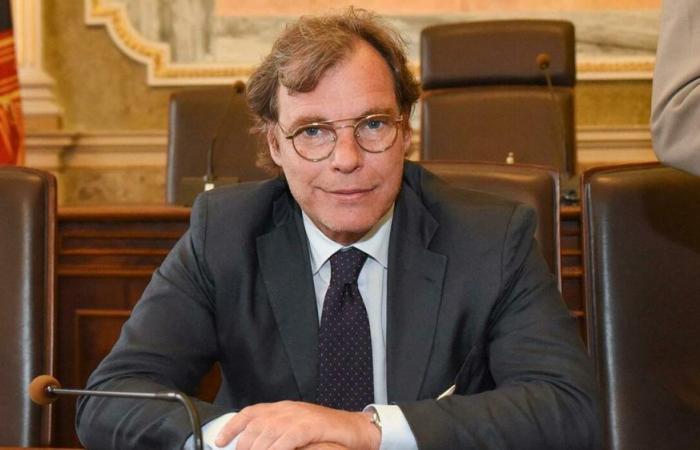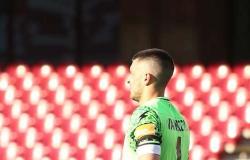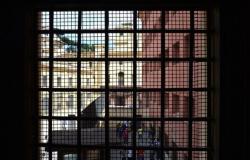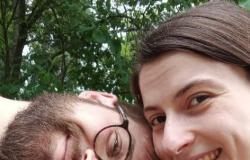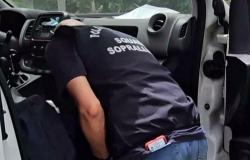VENICE – Is Veneto growing or slowing down? «It can only grow. It has a GDP of 189 billion euros, 80% of which comes from industry and large-scale exports. Venice is worth a lot, but an important reality like the Veneto is supported by industrial production, manufacturing, tourism, agri-food and the advanced tertiary sector. We have extraordinary superstructures, from universities to art. We are an industrialized reality, a widespread metropolis that can count on an excellent network of airports, ports, high-speed trains and motorways. And we are a connection point between East and West. The European market is the richest market in the world and must necessarily pass here.”
The terrible news of deaths at work?
«These deaths are unrealistic, like war. It is unthinkable to accept this reality. What happened to the Indian laborer is something difficult to even pronounce. We need to invest in prevention and training, in controls that must target especially where the illegal work that massacres us emerges. We need a great alliance against illegality: everyone must assume their own responsibilities.”
Vincenzo Marinese, 56 years old, Venetian entrepreneur, national vice-president of Confindustria, president of the Venice Foundation and also of the M9, the most modern museum in the Veneto, has no doubts about the future of the region. Born in Palermo, he arrived in Venice thirty years ago. His company is “Sirai” of Porto Marghera, a company for environmental redevelopment: 150 employees, 28 million euros in turnover. He carries out industrial reclamation and soil restoration works. Among the most demanding works are those for the conversion of the Enel in Fusina and for the new hydrogen plant in Marghera. With two other companies he has just won the contract for the reclamation of Bagnoli, a project worth almost half a billion euros.
How was the arrival in Venice?
«I grew up in Palermo until I was 14 and then in Rome. I lived with my father Lorenzo who, before becoming an entrepreneur, held public positions for years; he was also the president of the Florence airport. I followed him on his transfers. He sent me to the US, to Minneapolis, and when I returned to Rome I completed my studies at Luiss, also attending management school. I knew I would have to specialize in something, I started working as a consultant for certifications. Then almost by chance I was offered the purchase of a company in Marghera, Sta (Servizi Tecnologici Ambientali), founded in 1988, a very small company with three employees: today it is Sirai. I took it attracted by the name, Tecnologici ambientale inspired me: the first environmental decree arrived only in 1998, in some ways we were precursors. I arrived in Venice on January 23, 1995. I lived in Chirignago, where the company was, actually I lived in the office where I had created a small apartment. I also started to frequent Confindustria and the world of the association, a double track».
And how did it go on this double track?
«Limping at first. In the company two of the three historical employees left, I was left alone with the secretary, I went around looking for customers and also offered quality certification. In 1998 they asked me to try to design a groundwater treatment plant for a service station. The experimentation is going well and I understand that I have to convert the business: move from consultancy to implementation. So little by little we grew, we moved to the industrial areas and in 2001 we moved to the new headquarters in Marghera. A limping start also in Confindustria: I ran for the first time in 2000 in Venice, for the board of directors of young entrepreneurs, and I got zero votes! In those years my father moved to Treviso where he bought Guaraldo, a construction company. He wanted me to work with him, but I had decided that the environment was my destiny. I persisted in Confindustria, until Luigi Brugnaro proposed that I become his deputy in the Venetian association. I had to study a lot because the world of association is beautiful but requires a lot of skills.”
In between also the adventure with Venice football?
«An experience that I will never forget, my father asked me to take over the company, with carte blanche. The bulk of the shares were divided between me and Poletti; when there was a tender, a local entrepreneur was missing, I called Brugnaro and he entered the trust with 5%. We saved Venezia from disappearing, without us the auction would have been deserted. We bought the title for half a million euros, it was July and with Andrea Seno, a pillar of the neroverdi in Serie A, we registered the team for the C2 championship and sent it to retreat in Trento. After four days we were last in the standings. Then Nello Di Costanzo arrived, an extraordinary man and funny as hell, on the sixth day the audience shouted “Di Costanzo show”, with him we never lost, we won the championship and we were promoted to C1. The following year we reached the play-offs for Serie B, but my father and Brugnaro decided to leave. Poletti asked me to stay, Mayor Cacciari asked me to stay to provide continuity. I stayed until 2009, then the economic problems began and the following year Venezia went bankrupt. Luckily the new story and the team in Serie A have started again.”
Is he now national vice president of Confindustria?
“With the delegation to the organization and internal relations with the categories, the organizational machine. It is a delicate, demanding role. This time, a unique case, the Veneto metropolitan area has in me and in Leopoldo Destro two representatives with important roles”.
How is the situation today?
«We have very important issues before us which are probably not perceived with the sensitivity they require. We are a very indebted country, 50 thousand euros per capita, for 3,000 billion euros! We have a big demographic problem because workforce means productivity and pushing for development is the only thing that saves us. But today talking only about development doesn’t seem to bring votes. We have two issues: our young people and a very high unemployment rate; we must invest resources to enable them to enter the world of work. Specialist training is fundamental, it is important to combine a housing policy for workers, we must take young people away from families. The housing policy for students also applies to workers and immigrants who have a job. We need an industrial employment plan. Politics cannot think in the short term because it means not planning. If today we wanted to recover the demographic gap, we must clearly say and know that we will see the effects in twenty years!”.
Now the responsibility of the M9. In his office there is a blackboard with “2 million” written on it: what does that mean?
«This is an extraordinary Foundation, not a large one, it pays important investments which require equally important efforts. We are small but solid. The challenge is significant because it involves consolidating the museum and the entire district, which means giving visibility and relaunching the center of Mestre. Those 2 million are the money we lose every year, it is a significant asset immobilization. But this year we are already at a small attendance record: we will close at 100 thousand! We are making an industrial plan, temporary exhibitions – like those on Banksy and Burtynsky – which are expensive but project us internationally, opening alliances with other museums. We will enter the thematic itinerary of Venice.”
© ALL RIGHTS RESERVED
Read the full article on
The Gazette

